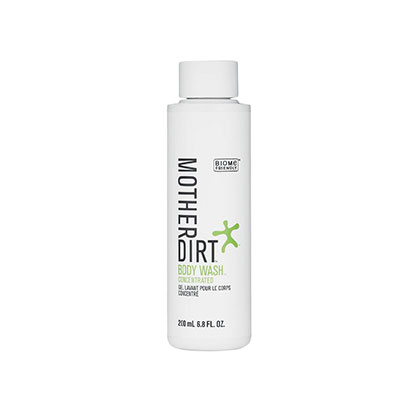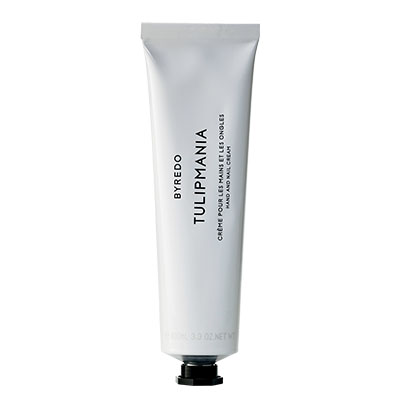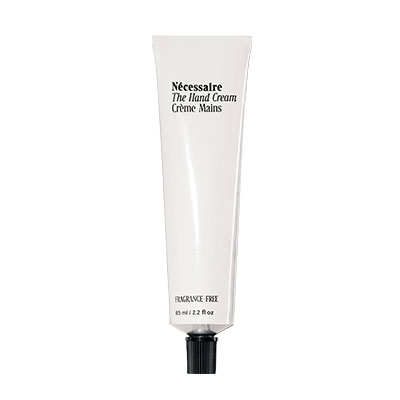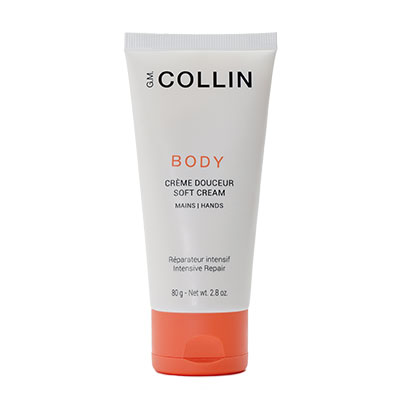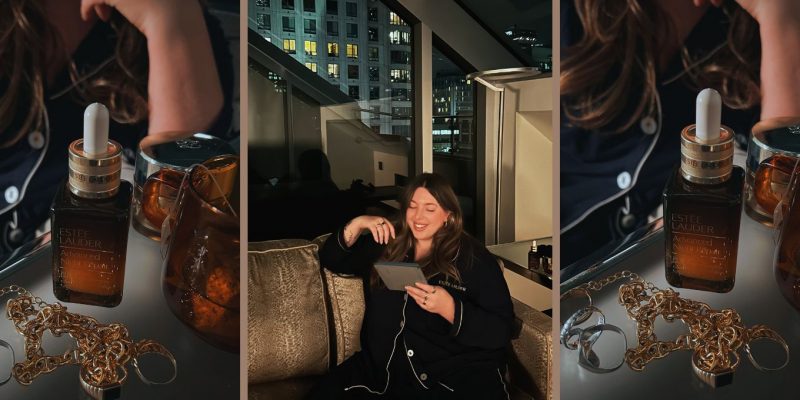Skincare
Handle With Care, or This Winter Is Going to Suck for Your Hands
Washing your hands like a surgeon heading into the OR is a key way to fight COVID-19, but between the extra hygiene and the skin-chapping cold temps, cuffing ourselves to moisture this winter will be a must. Here's how to do it.
by : Sarah Daniel- Dec 18th, 2020
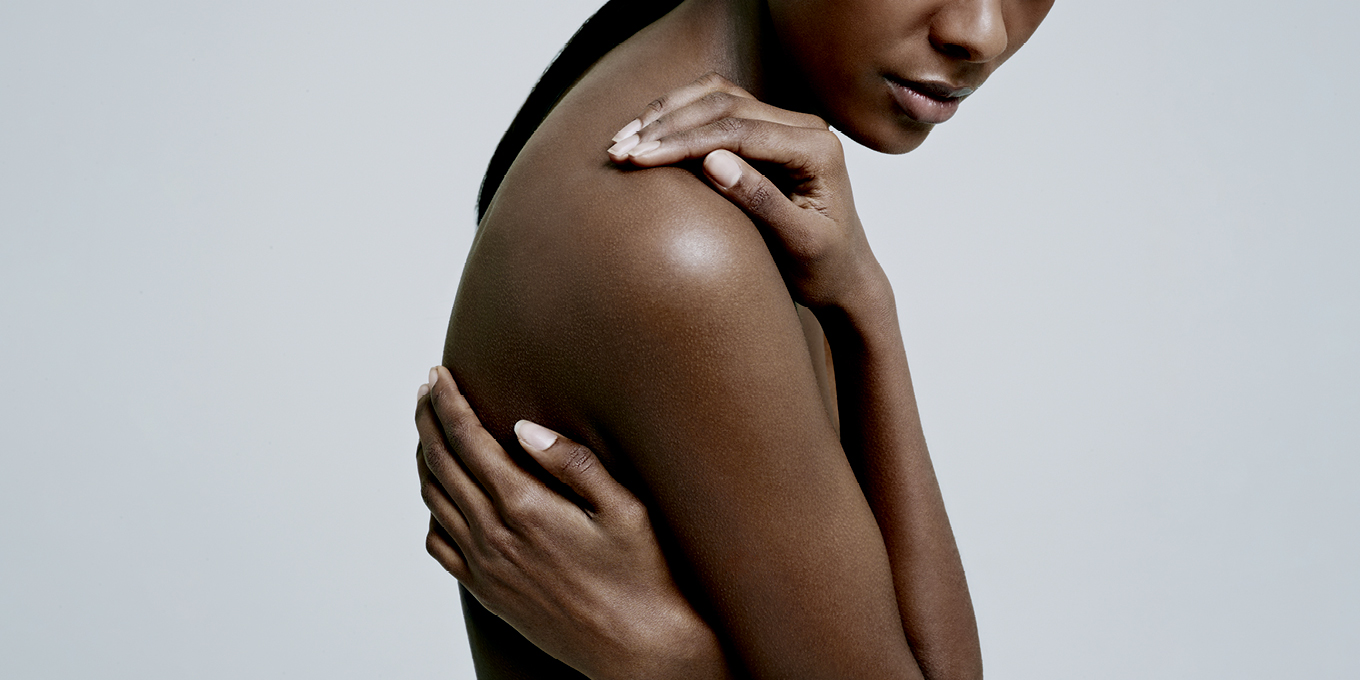
Getty Images
In the early days of the pandemic, our beauty and grooming priorities changed. Suddenly, multi-step handwashing routines replaced multi-step skincare routines, and soap and antibacterial gels became literal must-haves, earning spots next to our Hermès lipstick and Byredo perfume. (For those who want something a little cooler than Purell, trend-forecasting agency WGSN says we should expect the rise of “status sanitizers,” with design makeovers and slick packaging.) Meanwhile, tips for non-essential workers making the transition from cubicle to kitchen table populated our feeds, with experts advising that despite the natural inclination to roll out of bed and work in pyjamas, the key to success was to shower in the morning and get dressed. In other words, do what you’d normally do.
For many, the norm is showering daily—sometimes more than once if you follow a workout with a rinse. But while proper and vigilant hand hygiene continues to be vital in fighting the coronavirus— not to mention colds and the flu—the rest of your body does not require the same rigorous and frequent washing. In fact, doing so can actually cause harm by damaging the skin’s protective barrier. “Many of us were raised with the germ theory, meaning that we were taught to eradicate germs using harsh soaps and sanitizers until our skin was ‘clean’ or bacteria-free,” says Dr. Whitney Bowe, celebrity dermatologist and the author of The Beauty of Dirty Skin. But clean does not, and should not, mean bacteria-free, she says. “There are more than one trillion bacteria in and on our skin, originating from approximately 1,000 different species,” says Bowe. Known collectively as the “microbiome,” these diverse communities of bacteria keep our bodies healthy in ways that are just starting to be understood. But what we do know for sure is that the more we lather, scrub, rinse and repeat, the more we compromise our microbiome, creating an imbalance that can lead to a whole host of inflammatory skin disorders.
Part of the problem, says Dr. Sandy Skotnicki, is that we’ve conflated what we consider to be cleanliness with hygiene. “Hygiene is about decreasing the transmission of disease by washing your hands,” she says. “Washing your hair so it’s shiny and smells nice has nothing to do with it.” In her book, Beyond Soap, the Toronto-based dermatologist explores the connection between our obsession with cleaning and exfoliating our bodies (and applying an ever-expanding collection of cosmetics afterwards) and skin issues, from rashes to eczema flare-ups. She regularly advises patients—like middle-aged Bay Street types with squash memberships and an affinity for Irish Spring—who are complaining of skin issues to simply wash their “bits” (underarms, groin and feet) after exercising rather than soap themselves from head to toe. “Everything we do to our bodies is really about social and cultural norms,” says Skotnicki, who traces the origins of these habits to things like religion (soap equals purity) and early advertising (Procter & Gamble often featured brides in ads for its first “beauty soap,” Camay). As for why drugstore shelves are teeming with bar soap, shower gels and bubble baths in every conceivable scent from mango breeze to vanilla bean, that’s down to horizontal segmentation—a concept conceived by American market researcher and psychophysicist Howard Moskowitz, who championed giving consumers choices.
Next to the shampoo and body wash are all the conditioners and body lotions and moisturizers—products that are designed to replenish the moisture we strip away from our scalp and skin every time we bathe. It’s a cycle, says James Hamblin, author of Clean: The New Science of Skin. Several years ago, Hamblin, a physician and lecturer at Yale University’s School of Public Health, stopped using grooming products and showering in the traditional sense (he still rinses off with water occasionally, after a workout or as an antidote to bed-head) after reading emerging research on the microbiome. He wrote a story about it in The Atlantic, and readers had a lot to say. “It was a full spectrum of responses, from ‘You should lose your medical licence’ to ‘Thank you so much for being brave enough to speak the truth,’” he says.
Contrary to the showering-equals-productivity tips in those early-pandemic articles, working from home does present a unique opportunity for many of us to pare down our grooming routines, as Hamblin did, now that some of the social pressures of professional life have been removed. While there are class and privilege issues that have some bearing on people’s ability to do this, he says, many who would normally not feel empowered to do this now suddenly are.
For Hamblin, whose book came out this past summer, it must feel like an odd time to be promoting washing less, when there are microbes around that are making a lot of people very sick. “At first, I was really worried about it being misinterpreted, like just the central message of doing less,” he says. But he makes it very clear in the book that he has never questioned handwashing. “I have always been meticulous about it; I don’t challenge that,” he says. What he does challenge is taking a blanket approach to washing and grooming: “Just because something is good for one part of your body, or useful or healthy, doesn’t mean that it should be done everywhere and that more is better.”
Ironically, after all this overwashing and overapplying of products, we’re realizing that we need to add back the very things we’ve removed. It’s one of the reasons we’re seeing an influx of products infused with prebiotics and probiotics, from face wash to shampoo, with the goal of returning skin to its natural state. “If you think of your microbiome as sort of a game of Jenga, we’ve been pulling and stripping key foundational blocks from our skin for about 70 years,” says Doug Reffue, CEO of Mother Dirt. The skincare brand, born out of biotech start-up AOBiome, was founded by MIT-trained chemical engineer David Whitlock. It all started with a date at a horse farm, when Whitlock’s companion wondered aloud why the horses were rolling around in the dirt so much. Whitlock initially thought it was to get pests and mosquitoes off their skin, but he took her question to heart, collecting samples of the dirt and analyzing them at home in his lab. “What he found out is that animals rub in the dirt because they are trying to put keystone species back into their microbiome,” says Reffue. The company’s first product, AO+ Mist, a live-probiotic spray, features one of these bacteria species, called N. eutropha, which was originally part of the human skin microbiome but has been killed off thanks to our industrialized lifestyle and surfactants in soaps. This month, the brand is rolling out a new collection of products that focus on prebiotics, which are the food and nutrients that feed the live probiotic, and postbiotics, the by-products that remain on skin and keep it healthy.
You might think that a company called Mother Dirt, founded by someone who famously hasn’t showered for close to two decades, would advocate for cancelling showers, but that isn’t the case, says Reffue, who believes that the skin microbiome holds the key to many future advancements in both skin health and public health. “We’re not necessarily asking people to completely change their routines,” he says. “We’re asking people to rethink what it means to be clean and what their skin needs to be healthy.”
Handle with care
Between the extra hygiene and the skin-chapping cold temps, this winter is going to suck for your hands.
Since the 2003 SARS outbreak, “handwashing in medical settings has skyrocketed, and COVID-19 is just SARS on steroids,” says Dr. Sandy Skotnicki. “I see nurses and health- care workers by the hundreds with chronic hand dermatitis because of all the sanitizing they have to do.” While most of us are not washing as frequently as those on the front lines, we can adopt some of the same strategies that Skotnicki gives her patients. The most important thing is to moisturize every time you wash or sanitize your hands, she says. “You have to complete that circle because when you wash and sanitize, you disturb the barrier,” she explains. “You remove the natural oils and dry the skin out, so you have to replace that mois- ture.” Her other tip: When you’re not washing your hands, keep them away from water, which means wearing rubber gloves if you’re on dish duty or if you have young children, delegating bathtime to someone else, if possible. If you can, invest in a cool-mist humidifier for your bedroom and office, says Dr. Whitney Bowe, who also suggests applying a moisturizing balm at night and then tucking your hands into cotton gloves. “Even if you only leave them on for an hour, that occlusion will help heal any dry or chapped areas.”
Newsletter
Join our mailing list for the latest and biggest in fashion trends, beauty, culture and celebrity.
Read Next

Fashion
Bella Hadid Glows in a Strapless Lace Dress With a Sheer Corseted Bodice
Hadid was also seen that same day promoting her new fragrance brand ‘Ôrebella.
by : Briannah Rivera- May 3rd, 2024
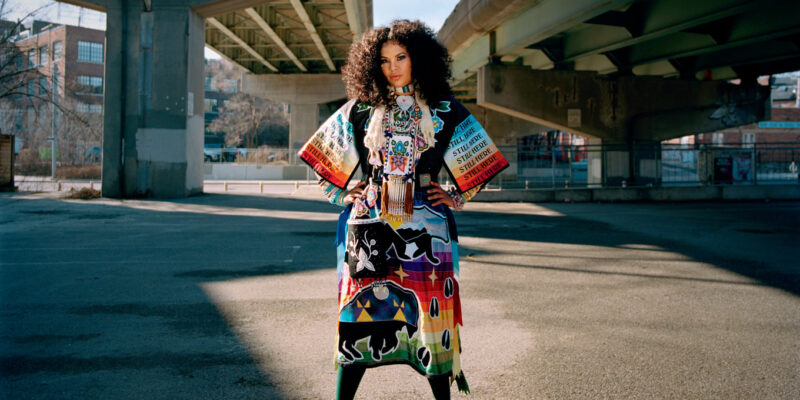
Fashion
This Year’s Indigenous Fashion Arts Festival Is Sure to Impress
"Creating an opportunity for us to work collectively—prioritizing language and tradition—is of the utmost importance. Our similarities are inspired and shaped by the legacies left to us by our ancestors.”
by : Kelly Boutsalis- May 3rd, 2024
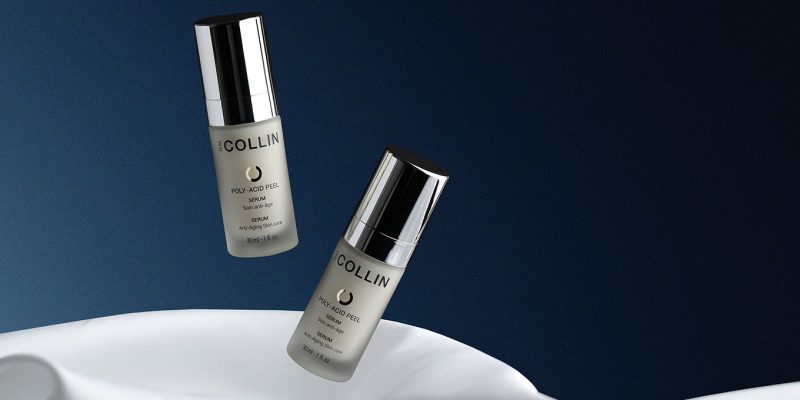
Beauty
This Exfoliating Serum Creates a ‘‘New Skin’’ Effect
Say hello to smooth, radiant skin.
by : ELLECanada.com- May 2nd, 2024



